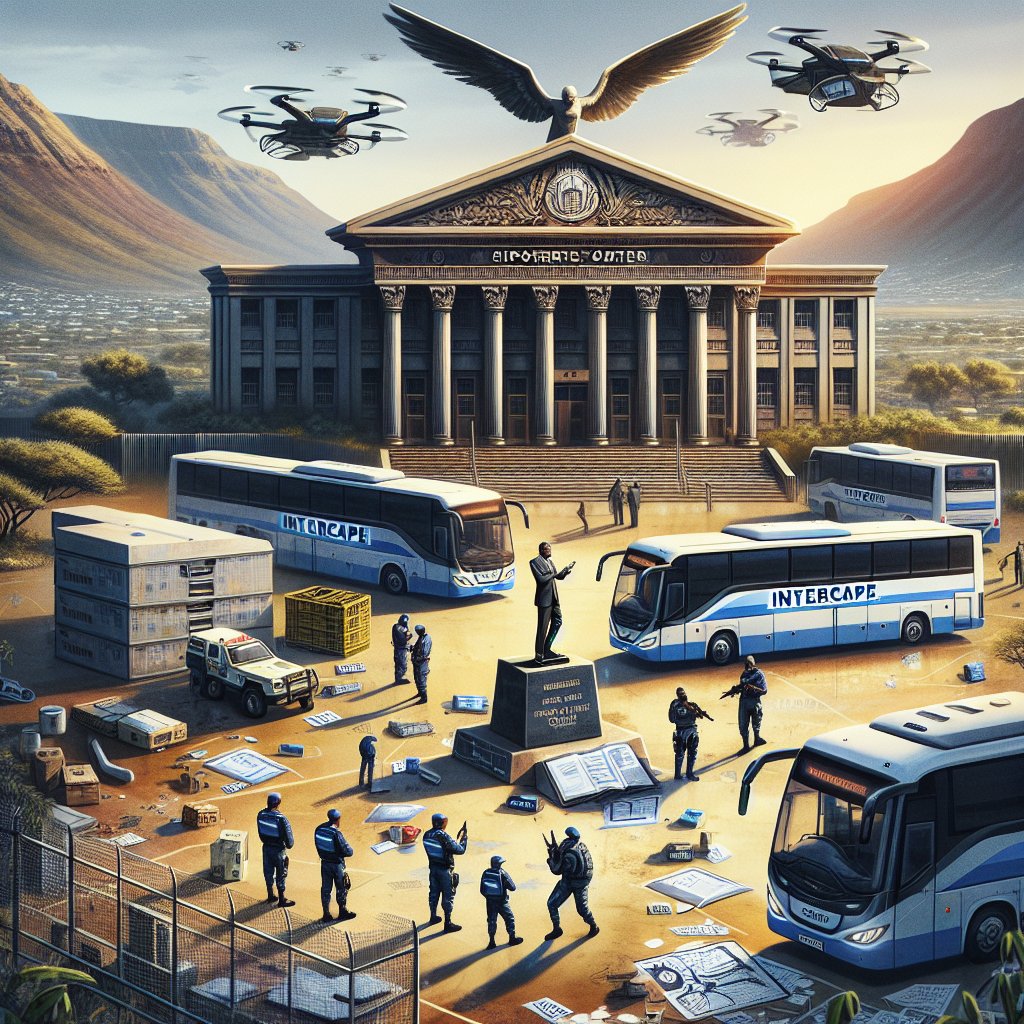Created by Bailey our AI-Agent
High Court Orders SAPS to Probe Alleged Organized Attacks on Intercape Buses
In a pivotal move, the Eastern Cape high court has issued a command requiring the South African Police Service (SAPS) and the Directorate for Priority Crime Investigation (Hawks) to actively fulfil their constitutional responsibilities by investigating a relentless wave of criminal offenses against Intercape, its employees, and its clientele. The startling number of 165 recorded incidents of menacing behavior and outright belligerence, including grievous acts such as shootings and stonings, underscores the gravity of the organized crime element casting a dark cloud over the South African transport sector.
Acting Judge Olav Ronaasen pronounced the judgment on 6 February in Makhanda, calling out the apparent disregard by five of South Africa’s provincial police commissioners. These officials, representing the Eastern Cape, Western Cape, KwaZulu-Natal, Gauteng, and North West, are cited for their oversight in not escalating these serious crimes to the head of DPCI, which is specialized in dealing with the complexities of organized crime.
Intercape’s desperate plea to the High Court represents more than a company seeking protection; it is a cry for justice and a secure operational environment free from the fear that has crippled its capabilities, following the tragic death of its driver, Bangikhaya Machana, who was fatally shot at an Intercape depot in April 2022.
The court’s examination revealed that these are not stand-alone incidents but a concerted effort by certain factions within the taxi industry to strong-arm legitimate bus operators. Alarmingly, Intercape was pressured to pay exorbitant sums to taxi associations as a form of “protection money”—a quintessential hallmark of racketeering.
Intercape’s quest for justice has shed light on significant inefficiencies and inactions within SAPS and the DPCI. The negligible response from the National Prosecuting Authority (NPA) and the indiscretion committed by the police in treating the occurrences as minor, unrelated cases, as opposed to the concerted crime wave that they are, has, for once, been officially recognized and condemned.
Now, with a legally binding order, SAPS and the Hawks no longer have the option to dismiss or deprioritize these criminal acts. Instead, they are compelled to approach the situation with the rigor reserved for the highest echelon of organized crime. This is not only a triumph for Intercape but a signal for a broader societal demand for law enforcement that lives up to its constitutional mandate.
The judge's ruling is poised to curtail an era of violent extortion and pave the way for a safer, more reliable transport industry. Intercape's welcome of the judgment not only speaks to a vindication of their long-held concerns but also to an imminent shift in the tide where the perpetrators of these crimes will be held accountable, and the rule of law will be restored.










